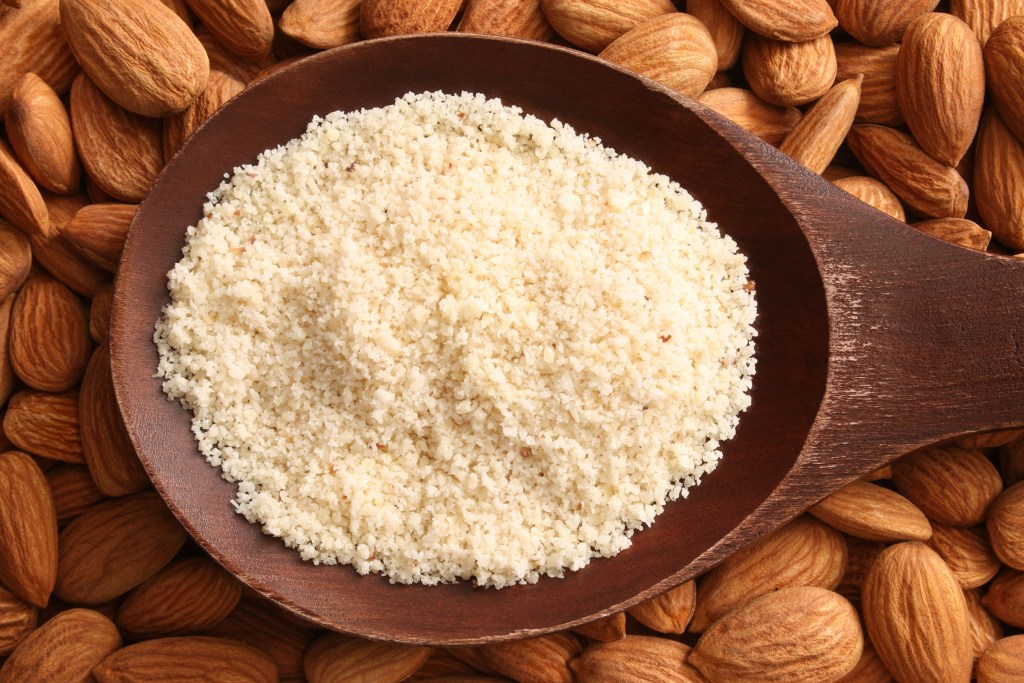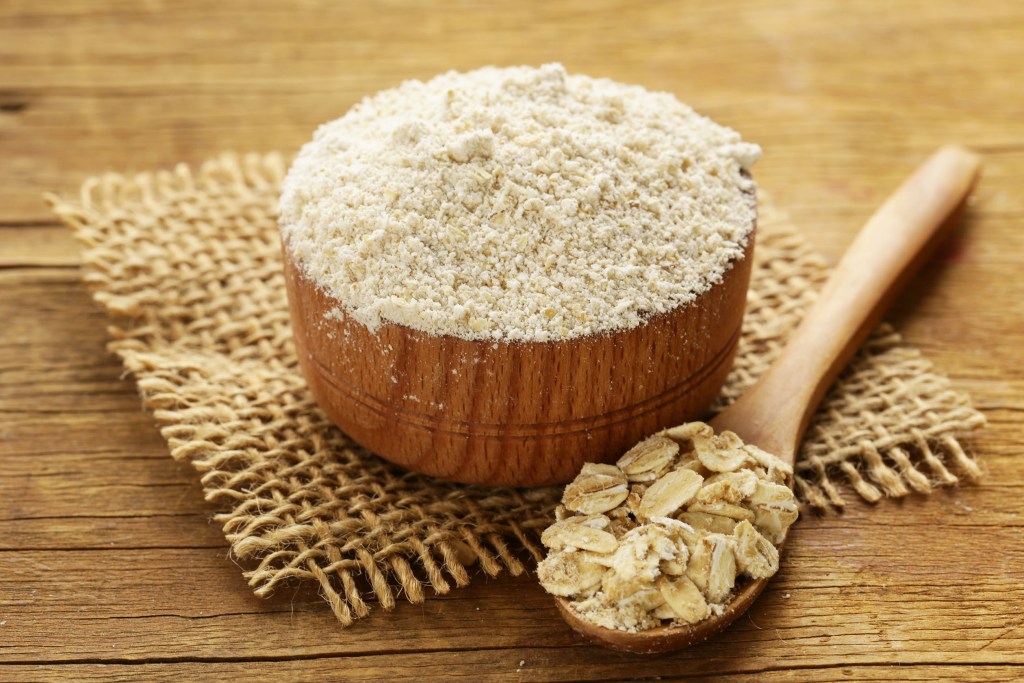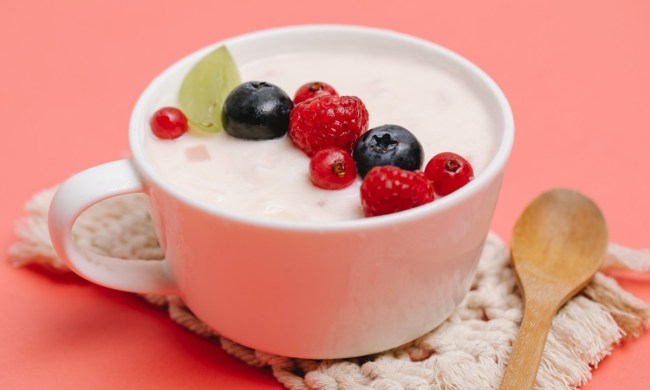Flour is not an ingredient people think much about, that is until a recipe calls for it. Traditional all-purpose flour is made of ground wheat. But, because of food sensitivities, specialized diets, and medical conditions, many cannot eat regular flour. Nowadays, there is a wide variety of products available for people with gluten intolerances, which means there are plenty of flour substitutes to choose from. Keep reading to learn why you may want to ditch traditional flour and the best substitute for wheat flour to try instead.

When to use a flour alternative
Though all-purpose flour is the most common type used in baking and cooking, it’s not suitable for all people. Because it contains wheat (and, by extension, gluten), traditional flour can cause digestive issues for a lot of people. People with celiac disease, gluten intolerance, or other food allergies may need to avoid wheat flour. Those who have IBS may also benefit from a gluten-free diet.
Wheat flours such as all-purpose, cake, and pastry flours are also high in carbs and low in protein, fiber, and healthy fats. Their nutritional composition can cause blood sugar levels to spike, which can be dangerous for people with diabetes. Refined wheat flour has very little dietary value overall, but it does pack on a lot of calories. One cup of all-purpose wheat flour contains 455 calories.
Many flour alternatives pack in a lot of fiber, protein, and other essential nutrients. If you’re trying to eat healthier or on a specialized diet like keto, you may benefit from using a flour substitute.

Best wheat flour substitutes
It’s important to note that when using alternative flours you can not simply make a one-for-one sway with traditional wheat flour. Each flour substitute has its own unique properties. Some need more liquid, eggs, or other binders to create edible dishes. Try to use a recipe that calls for the replacement flour whenever you can, or do some research to see what else you need to add to compensate. If you’re not allergic to wheat flour, you can also mix the regular flour with the new substitute. No matter which method you choose, you may need to experiment a little until you find the perfect recipe.
Now that you are forewarned, here are the four best substitutions for wheat flour that you should try.
Almond flour
One of the most popular non-wheat flours is almond flour. This flour is made by blanching almonds and grinding them into a fine powder. It has a subtle nutty flavor that works well in a lot of desserts. The flour is also rich in fiber, protein, unsaturated fat, and vitamin E. Since its high in fat, it has more moisture, so you will need to adjust the amount of flour, liquid, and fat in your recipes. You will also need to use a binder, so the dessert has structure. As a rule of thumb, one cup of white flour equals roughly 1/4 cup almond flour. It’s also important to note that there is a difference between almond flour and almond meal with the latter being rougher in texture and made of unblanched almonds.
Coconut flour
Coconut flour is made of dried and ground coconut pulp. The flour is high in fiber, healthy fats, and digestible carbs. Coconut’s naturally sweet flavor works well in lots of treats. However, the flour absorbs a lot of moisture, which creates a dense, heavy texture. You’ll need to add extra eggs or liquid to your recipes to prevent them from drying out. In general, one cup of traditional flour is equivalent to 1/5 cup coconut flour.

Oat flour
If you have oats in your pantry, you have everything you need to make oat flour. This flour is made by grinding oats until the texture is fine and powdery. It’s full of nutrients like iron, calcium, and magnesium. Plus, its high fiber and protein levels help provide structure to baked goods. Oat flour has a very mild flavor, too. Generally, when converting refined flour to oat flour, one cup of white flour equals 1/5 cup of oat flour.
Buckwheat flour
While buckwheat seeds are grain-like, they are not a type of wheat. Gluten-free buckwheat flour is high in protein, fiber, and B vitamins. Many people love the addition of buckwheat flour’s earthy, nutty flavor to desserts. The dense flour has natural binding properties, and it’s an especially great substitution for pancakes, cookies, and other recipes that don’t rise. Typically, you should sub 1/4 cup of buckwheat flour for every 1 cup of regular flour.
Flour substitutions are almost as easy to find (or use in your kitchen) as all-purpose wheat flour. For people with gluten allergies, restrictive diets, or certain medical conditions, these alternative flours can be absolute lifesavers. And while experimenting with recipes to find the right formula can be challenging, there are plenty of recipes out there designed especially for alternative flours.
BlissMark provides information regarding health, wellness, and beauty. The information within this article is not intended to be medical advice. Before starting any diet or exercise routine, consult your physician. If you don’t have a primary care physician, the United States Health & Human Services department has a free online tool that can help you locate a clinic in your area. We are not medical professionals, have not verified or vetted any programs, and in no way intend our content to be anything more than informative and inspiring.



